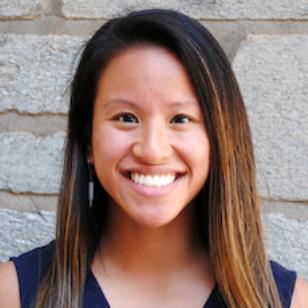Macrophage Phenotype Transition as the Biological Mechanism of Chronic Wound Healing
Wednesday, September 25, 2019
12:00 PM-2:00 PM
BIOMED PhD Research Proposal
Title:
Macrophage Phenotype Transition as the Biological Mechanism of Chronic Wound Healing Treated with Non-Thermal, Non-Cavitational, Therapeutic Ultrasound
Speakers:
Olivia Ngo, PhD Candidate
School of Biomedical Engineering, Science and Health Systems
Drexel University
Advisors:
Peter A. Lewin
Richard B. Beard Distinguished University Professor
School of Biomedical Engineering, Science and Health Systems
Drexel University
Kara L. Spiller, PhD
Associate Professor
School of Biomedical Engineering, Science and Health Systems
Drexel University
Details:
The goal of this project is to determine the biological mechanisms of low-frequency (20-100 kHz), low intensity (50-150 mW/cm2) ultrasound (LFLI US) on macrophages, which play a critical role in chronic wound healing. Chronic wounds, such as venous and diabetic ulcers, affect approximately 6.5 million patients in the United States. We have previously reported that treatment with LFLI US significantly (p<0.03) reduces venous ulcer (VU) size in vivo as compared to VUs treated with a sham device. In a recently completed pilot study of diabetic ulcers (DUs), LFLI US treated wounds healed in nearly one third the time of the sham-treated wounds. However, the mechanisms of this ultrasound-mediated healing are not understood.
There is evidence that the cause of impaired healing is the dysregulation of macrophage phenotype, especially the defective transition from pro-inflammatory (M1) to pro-healing (M2) macrophages, which has been identified as a major source of chronic inflammation. Macrophage phenotype has been shown to respond to mechanical stimulus. A possible biological mechanism is through mechanotransduction cellular signaling. One potential mechanotransduction pathway by which ultrasound-induced phenotype changes may occur is through the Rac2 pathway. Rac2 is a key downstream regulator of mechanotransduction in macrophages and transition of M1 to M2 macrophages11. M2 macrophages promote fibroblast proliferation and the stabilization of angiogenesis, which are essential for the wound healing process.
We propose to systematically examine the effects of LFLI ultrasound on macrophage phenotype in vitro and in debrided venous chronic wound tissue after in vivo LFLI US treatment. These results may provide information for the optimal design of LFLI ultrasound therapy protocols, lead to a personalized treatment, accelerate chronic wound healing, and reduced annual wound care costs.
We hypothesize that low frequency, low intensity ultrasound (LFLI US) stimulates the transition of pro-inflammatory M1 macrophages to pro-healing M2 macrophages via Rac2.
Contact Information
Ken Barbee
215-895-1335
barbee@drexel.edu

Location
One Drexel Plaza, Garden Level, Room 34, located at 3025 Market Street.
Audience
- Undergraduate Students
- Graduate Students
- Faculty
- Staff